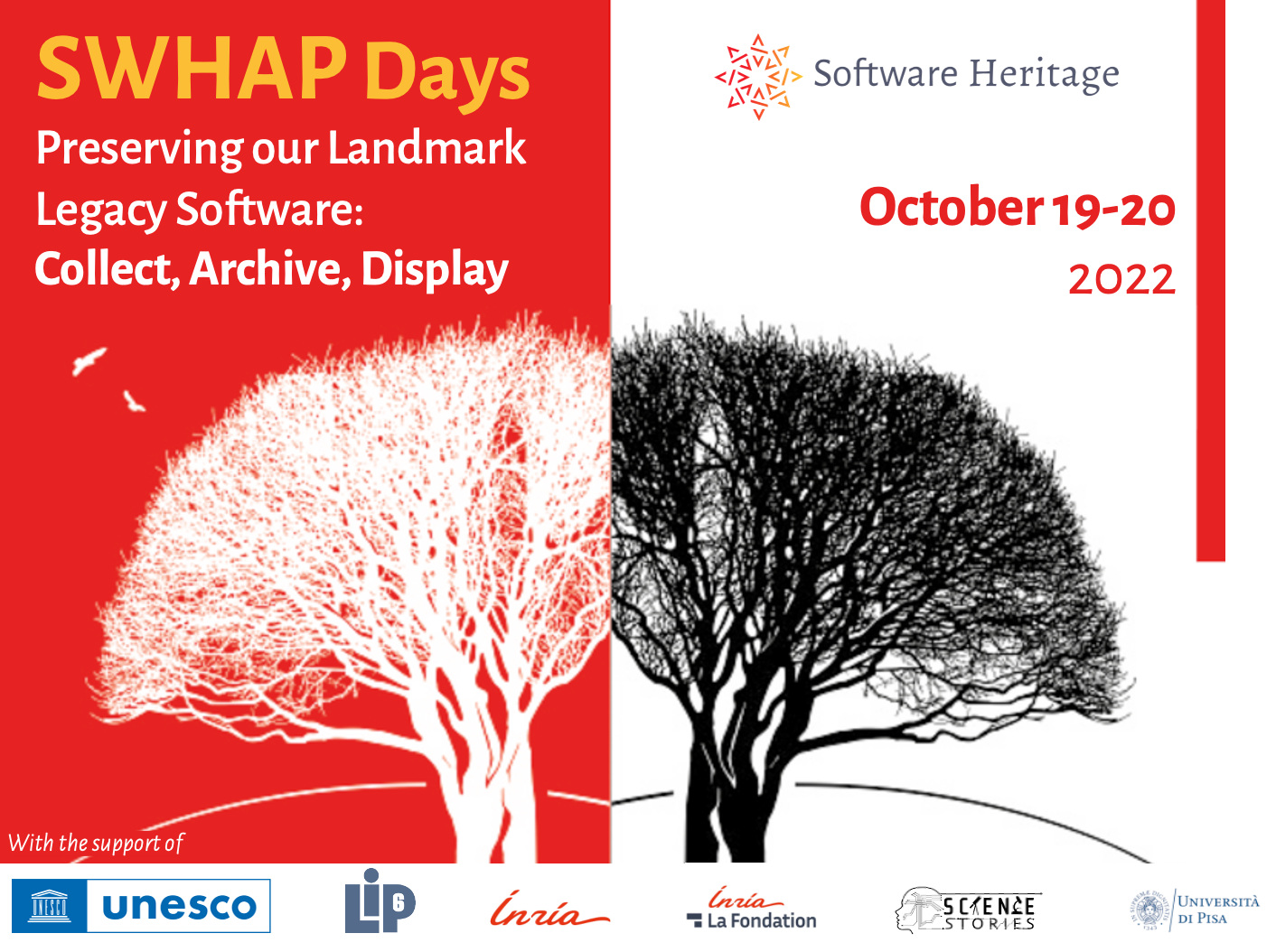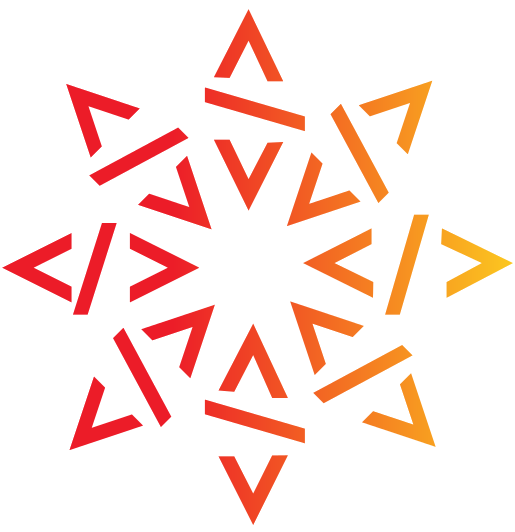SWHAP Days
Preserving our Landmark Legacy Software: Collect, Archive, Display
Paris, 19-20 October 2022

Software Heritage organises SWHAP Days, a two-day workshop to reflect on the current state and the future of software preservation, exploring challenges and opportunities related to the collection, archival and display of our landmark legacy software.
This workshop will also be the chance to learn more about the Software Heritage Acquisition Process (SWHAP) and the Software Stories presentation platform, developed with support from UNESCO in collaboration with the University of Pisa and the sciencestories.io team.
Free to attend and open to the public, SWHAP Days will take place in Paris and online on the 19th and 20th of October 2022.
This workshop is organized with the support of UNESCO, Inria, Inria Foundation and Lip6.
Software Heritage is an open, non profit, multi-stakeholder initiative to build the universal archive of all publicly available source code, launched by Inria in partnership with UNESCO.
Programme
The daily program includes a series of short talks, followed by a practical demonstration of the Software Heritage Acquisition Process (October 19th) and of the Software Stories (October 20th). The program of each day will end with a round-table and a discussion on the future perspectives for archiving and displaying our software heritage.
October 19th: Collect & archive landmark legacy software
14.00 Welcome address
- Fackson Banda, Chief, Documentary Heritage Unit, UNESCO
- Anne-Catherine Fritzinger, Director of Libraries, Sorbonne University
- Fabrice Kordon, Director, LIP6
- Roberto Di Cosmo, Director, Software Heritage
Talks
- David C. Brock, Computer History Museum, Mountain View, California
- Wendy Hagenmaier, Representative, Software Preservation Network Representative & Georgia Tech
& Jessica Farrell, Community Facilitator, Software Preservation Network - Ronald Burkey, Founder, The Virtual AGC Project
The UNESCO SWHAP process for landmark legacy software
- Roberto Di Cosmo, Director, Software Heritage
SWHAP in action
- Laura Bussi, PhD candidate, Department of Computer Science, University of Pisa
Legacy software creator’s perspective (SWHAP)
- Carlo Montangero, Former professor of Computer Science, University of Pisa
Roundtable
- Pierre Mounier-Kuhn, CNRS, Sorbonne University & CentraleSupélec
- Baptiste Mélès, CNRS, Archives Henri-Poincaré, Université de Lorraine
- Hansen Hsu, Computer History Museum, Mountain View, California
- Moritz Feichtinger, History Department, University of Basel
October 20th: Display & share our software heritage
14.00 Talks
- Philippe Dubois, MO5
- Heather Meeker, FOSSDA
- Ethan Gates, Software Preservation Analyst, Yale University Library and Emulation-as-a-Service Infrastructure (EaaSI)
The UNESCO Software Stories for landmark legacy software
- Katherine Thornton, Co-founder, ScienceStories.io
Software Stories in action
- Kenneth Seals-Nutt, Co-founder, ScienceStories.io
Legacy software creator’s perspective (Software Stories)
- Claude Gomez, Former CEO of Scilab Entreprises, former Senior Scientist at Inria
Roundtable
- Doron Swade, Computer Conservation Society
- Tom Haigh, Visiting Professor of the History of Computing, Siegen University & Associate Professor, University of Wisconsin – Milwaukee
- Marc Weber, Computer History Museum, Mountain View, California
- Claire Fox, Emulation-as-a-Service Infrastructure (EaaSI)
- Bostjan Spetic, Computer History Museum Ljubliana, Slovenia
Closing remarks
- Roberto Di Cosmo, Director, Software Heritage
Registration and contact
This hybrid event will take place on the Jussieu Campus of Sorbonne Université, and is open for attendance by a broad audience, including the general public.
Registration is free, but mandatory: if you plan to attend, please fill out this registration form in order to receive participation and/or connection details. Due to space constraints, only a limited number of people will be able to participate in person: if you really want to come, register soon!
Please contact swpres2022@softwareheritage.org for any other inquiry.
